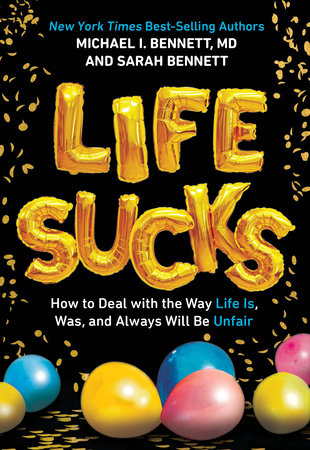Social media has a distorting effect — not just on global politics or how we perceive the color of a dress, but on what it means to be happy, have a desirable life, and be a good person. This is especially true for kids.
At its core, social media is about advertising, but not just in terms of the products and news articles that algorithms put in our feed. Users are advertising themselves, making themselves look special, important, and happy, no matter how many filters it takes.
While the aggravation, envy, and self-doubt that come from scrolling through “influencer” feeds may seem harmless, it can actually be damaging, especially to younger people. That’s because they traditionally look to their peers to help them determine what’s normal and who they should aspire to be, and they particularly fear the stigma and social exclusion that comes from not fitting in with their peer group’s arbitrary, often superficial expectations.
With social media, their peers aren’t just the popular kids at school but the wider world of models, celebrities, and influencers — people who are close enough in age but appear light-years ahead in terms of wealth, beauty, and access to the kind of fun and overall resources most of us can only dream of.
The problem, of course, is that most of these influencers achieved their fabulousness — their looks, wealth, proximity to tropical beaches — through sheer luck, which isn’t something anyone can control. Longing for something you basically need to be #blessed to achieve is a massive, painful waste of time that creates the false notion of being cursed.
That’s why the core of our advice, for both adults and kids, begins with learning to accept what you can and can’t control, especially during those times when making things better isn’t really possible. And the one thing you can control when life sucks is knowing your standards for being a good person — not a public persona or consumer — and to live up to those standards regardless of how you feel or look or what other people think.
Being a good person isn’t about being perfect or ultra-unselfish; you don’t need to work in a soup kitchen or donate a kidney in order to qualify. In part, that’s because helping others must always come second to doing the smaller things required every day to take care of your own responsibilities and live up to your own values and ideals.
After explaining these ideas to their kids, parents can engage with them, asking them to think about what they can and can’t control given how often life is just plain unfair. They can also ask their kids to think about the qualities they most admire in people they believe to be good. Trying to live up to those qualities is something they can plausibly work toward every day, unlike becoming a supermodel or owning a yacht.
This way, parents aren’t lecturing their kids about the importance of real values or the evils of superficiality — two topics that will instantly set eyes rolling — but encouraging them to make up their own minds about the values they find important. After all, people of any age are much more likely to make smart decisions if they’re asked to think through issues carefully and determine the right thing on their own, rather than being pushed in that direction.
We all struggle not to compare ourselves to others, but such comparisons don’t always have to be negative. If we focus on what we can control and compare ourselves to real people whose behavior — not image — is worth emulating, such comparisons may drive us to feel better about ourselves and actually become better people, even if we only impress ourselves.
-
By the Authors:
-
Life Sucks
Available from:With their open and honest approach, father-daughter team Michael I. Bennett and Sarah Bennett’s book is sure to appeal to teenagers and show them they aren’t alone in dealing with fake friends, with parents who think they’re “hip,” and even how high school isn’t everyone’s glory days.
Also available from:

